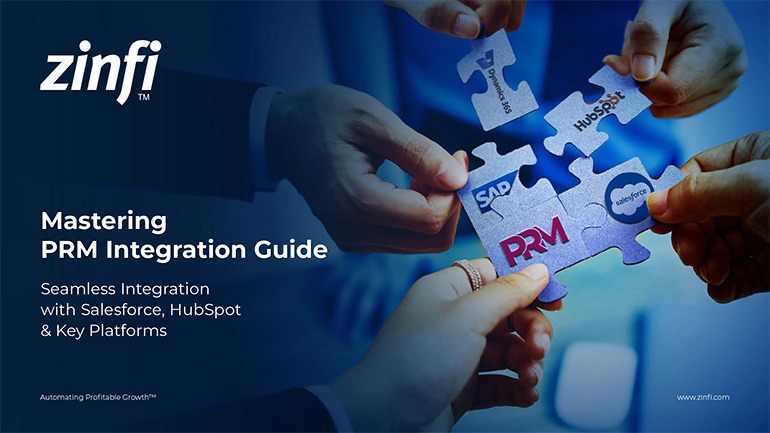Glossary - How to - Channel Marketing Management
How to Implement Channel Marketing Management?
Introduction
What is Channel Marketing Management?
Channel marketing management refers to the business strategies and processes to promote and sell products or services through a network of partners, distributors, resellers, and other third-party organizations. This model allows companies to expand their market reach, optimize resources, and improve sales performance without relying solely on direct sales efforts.
In today’s competitive business landscape, organizations leverage channel marketing management to enhance brand visibility and drive revenue growth. Companies can increase efficiency and improve customer satisfaction by fostering strong relationships with channel partners and implementing structured marketing programs.
The Role of Channel Marketing Management in PRM
Channel marketing management is crucial in Partner Relationship Management (PRM). PRM platforms help businesses streamline collaboration with channel partners, offering tools for partner onboarding, training, lead management, co-branding, and performance tracking. With effective channel marketing management, organizations can maximize partner engagement, ensure brand consistency, and optimize marketing campaign effectiveness across different regions and industries.
Key Takeaways:
Develop a Comprehensive Channel Marketing Strategy:
A well-defined channel marketing strategy is essential for success. Here’s how to create one:
- Define Objectives: Set clear goals, such as increasing partner sales, enhancing brand awareness, or improving customer support.
- Segment Your Partners: Categorize partners based on capabilities, geographic coverage, and market focus.
- Align Incentives: Design competitive incentive programs, such as rebates, discounts, and performance-based rewards.
- Leverage PRM Tools: Use PRM platforms like ZINFI to manage partner relationships effectively.
Enhance Partner Training and Enablement:
Providing partners with adequate training and resources ensures they represent your brand effectively. Strategies include:
- Develop Onboarding Programs: Ensure new partners understand your products, services, and brand values.
- Offer Continuous Training: Provide e-learning modules, webinars, and certifications to enhance partner expertise.
- Provide Marketing Collateral: Supply partners with co-branded content, sales scripts, and case studies.
Implement Co-Marketing Campaigns:
Co-marketing initiatives help drive joint success. Key aspects include:
- Create Customizable Marketing Assets: Enable partners to personalize campaigns while maintaining brand consistency.
- Run Joint Webinars and Events: Collaborate on industry webinars, trade shows, and digital marketing initiatives.
- Invest in Digital Marketing: Utilize PPC, SEO, and social media strategies tailored to partner needs.
Monitor Performance and Optimize Campaigns:
Tracking key performance indicators (KPIs) helps assess the effectiveness of channel marketing efforts. Key metrics to track include:
- Partner Sales Growth: Measure revenue contributions from different channel partners.
- Lead Conversion Rates: Analyze how many leads generated by partners convert into actual sales.
- Engagement Levels: Track participation in training, events, and co-marketing programs.
- ROI of Marketing Campaigns: Evaluate the profitability of different marketing activities.
Foster Strong Partner Relationships:
Building long-term relationships with channel partners enhances collaboration and mutual success. Key approaches include:
- Regular Communication: Hold quarterly business reviews and strategy sessions.
- Personalized Support: Offer dedicated account managers and 24/7 support.
- Transparent Policies: Clearly outline expectations, guidelines, and partnership benefits.
Summary of Key Takeaways:
- Develop a structured channel marketing strategy with clear objectives and incentives.
- Enhance partner training and enablement to ensure brand consistency.
- Implement co-marketing campaigns to amplify brand reach.
- Monitor performance and optimize campaigns using PRM tools.
- Foster strong relationships with partners for long-term success.
Key Examples:
- Automotive Manufacturing: Channel marketing management helps automotive manufacturers streamline dealership networks, enabling them to distribute vehicles and spare parts. By implementing co-marketing campaigns, manufacturers can ensure consistent branding across dealerships.
- Consumer Electronics: Electronics companies leverage channel marketing to drive sales through retailers and e-commerce platforms. Training programs ensure sales associates effectively promote and sell products.
- Energy Production: Energy providers use channel marketing strategies to collaborate with distributors and contractors, expanding their reach to new markets while maintaining regulatory compliance.
- Financial Services: Banks and insurance companies implement channel marketing through affiliate networks, brokers, and referral programs, enhancing customer acquisition and retention.
- Food and Beverage: Distributors and franchisees play a vital role in expanding the reach of food brands. Channel marketing management helps maintain brand consistency and optimize promotional efforts.
- Healthcare Services: Medical device and pharmaceutical companies rely on channel partners for sales and distribution. Effective marketing management ensures compliance and regulatory adherence.
- Information Technology: IT firms utilize VARs (Value-Added Resellers) and MSPs (Managed Service Providers) to promote and sell technology solutions, requiring robust training and incentive programs.
- Pharmaceutical Development: Pharmaceutical firms partner with wholesalers, hospitals, and pharmacies. PRM tools help track sales, regulatory compliance, and promotional activities.
- Retail Industry: Retail brands collaborate with franchisees and online marketplaces. Channel marketing strategies ensure consistent branding and optimized sales processes.
- Telecommunications: Telecom providers partner with retailers and service resellers to expand their customer base. Co-marketing campaigns and bundled services enhance customer retention.
Conclusion:
Effective channel marketing management is essential for organizations looking to expand their market presence and improve sales performance through partner networks. Businesses can drive long-term success by developing structured marketing strategies, enhancing partner enablement, leveraging co-marketing campaigns, and monitoring performance. PRM platforms like ZINFI provide the tools to streamline partner engagement, ensuring alignment with business goals and sustained growth in competitive industries.
Associated Keywords:















